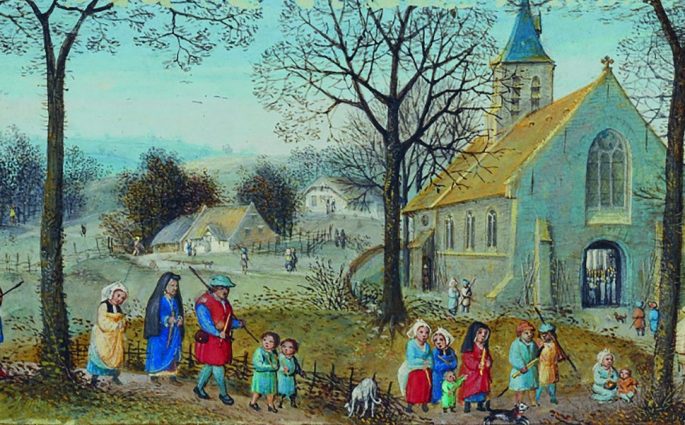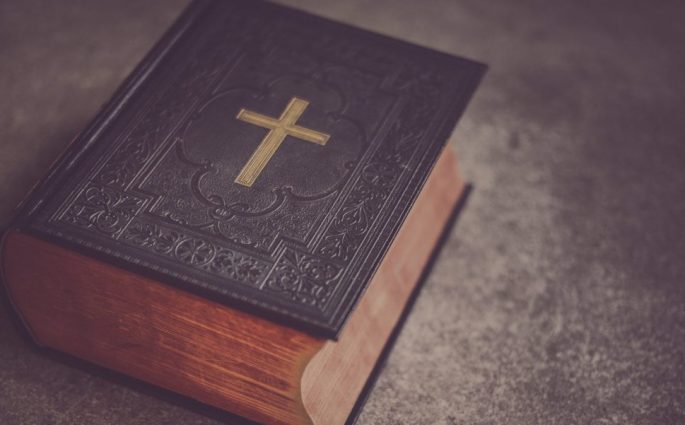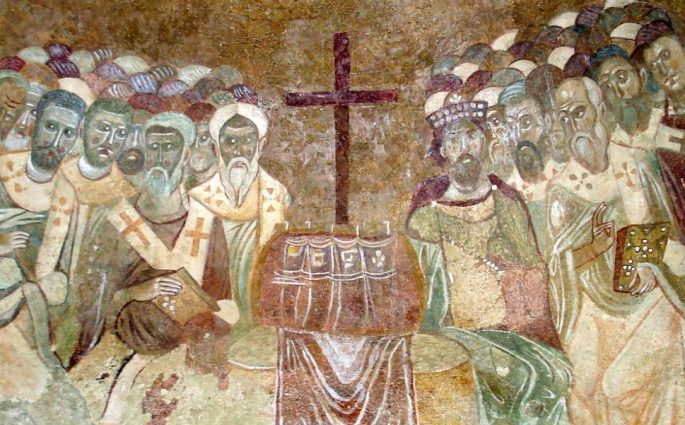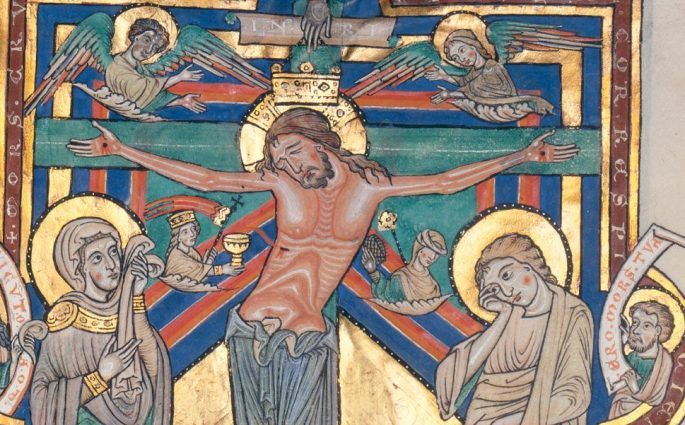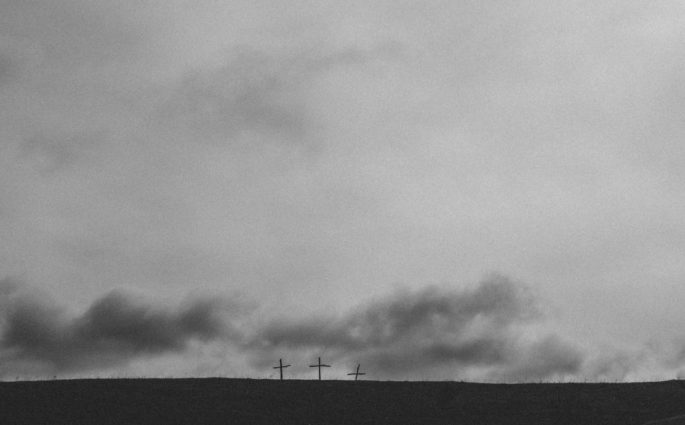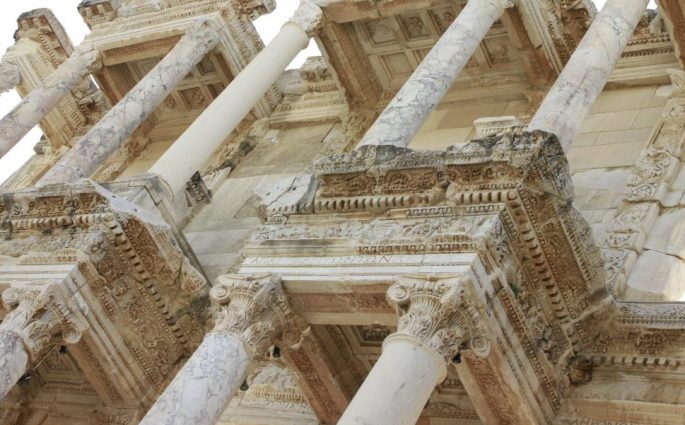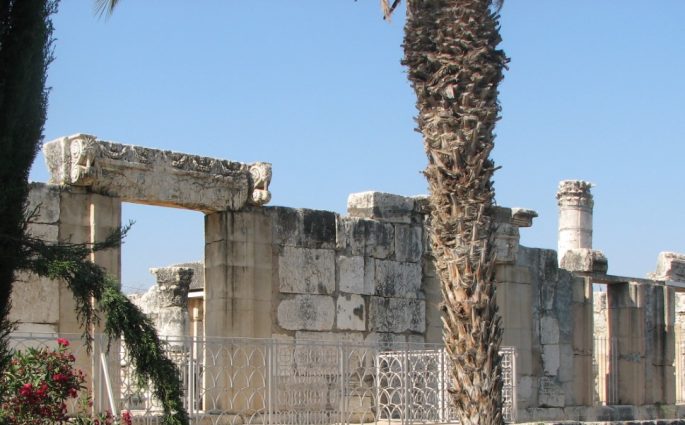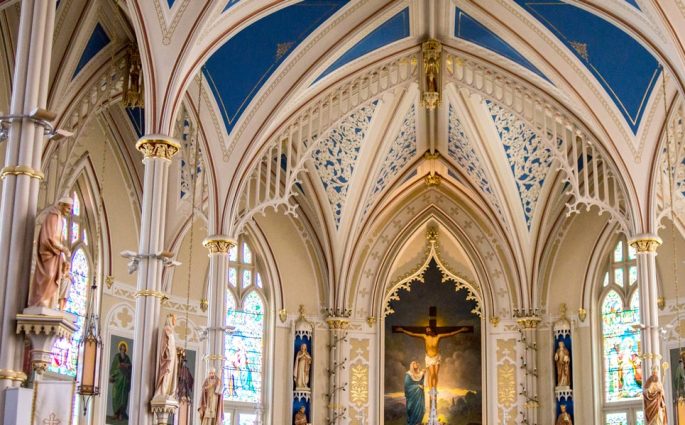A Baby’s First Visit to Church in 1500
Nicholas Orme— This is a scene from a fifteenth-century stained-glass window at Doddiscombsleigh: a country church in Devon, in the south-west of England. It shows what would have been a familiar event. A baby is brought to church to be baptized. The ceremony takes place at a font: a stone

